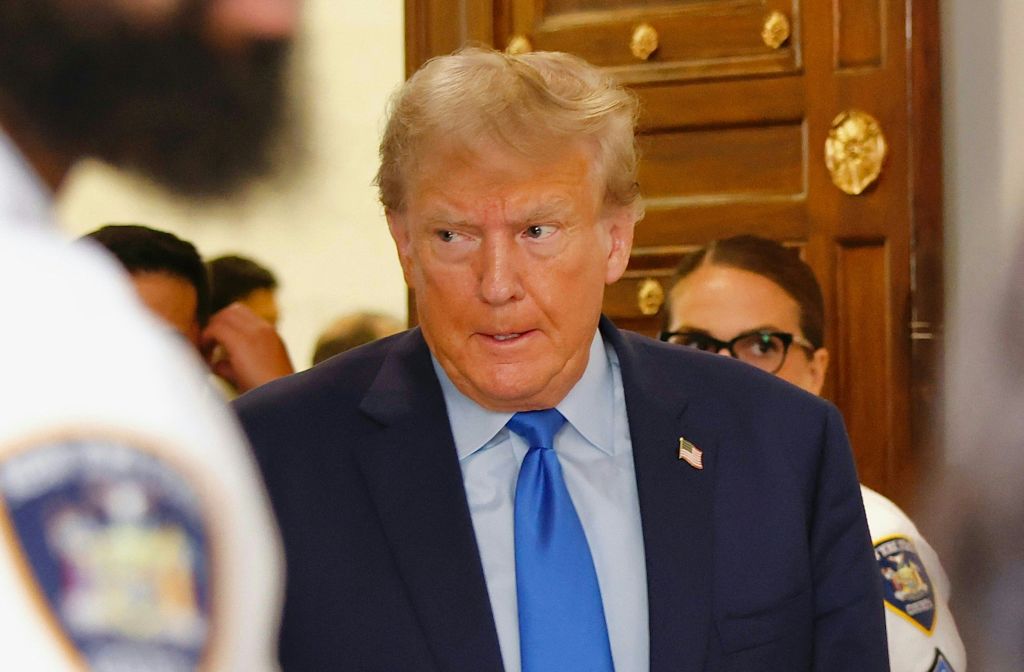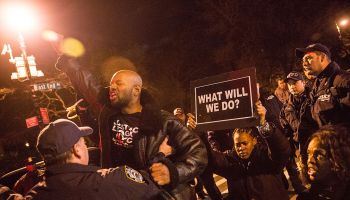Anyone keen on the Supreme Court’s on-going arguments over the legality of certain parts of the Voter Rights Act surely has not forgotten Justice Antonio Scalia‘s “racial entitlement” remarks from earlier this year–especially “The Crisis,” the NAACP’s flagship publication.
SEE ALSO: Massachusetts Keeps A Slavery Myth Alive
“I think it is attributable, very likely attributable, to a phenomenon that is called perpetuation of racial entitlement. It’s been written about, Scalia said of the Act during a hearing back in February. “Whenever a society adopts racial entitlements, it is very difficult to get out of them through the normal political processes.
The award-winning magazine pulled no punches with its response, using its cover to feature an illustration of Justice Scalia with a Confederate flag bandana wrapped around his mouth. The conservative’s eyes peer ominously through his thinly-framed eye glasses, evoking worst memories from the era in which the original Voter Right’s Act was born.
The cover is very hard-hitting, but The Crisis’ Editor-in-Chief, Jabari Asim, told NewsOne, “we thought his comments were hard-hitting and deserved that kind of response. I think that voting rights is one of those principles that the Crisis, African-Americans, and the NAACP all hold sacred. The memory of people who died for our right to vote remains fresh in many of our consciences and I think in that instance when you dare to be that irreverent and that disrespectful of the lessons of history that’s the kind of response you earn.”
While the final ruling on the Act is not expected until June, the Crisis decided to run the cover now because the editors wanted to keep the case fresh in readers’ minds. The magazine, which is now available, also has a number of stories focused on the case.
The disputed part of the Act–Section 5–requires 16 mostly southern states to clear any voting changes with the federal government before enacting them into law. The Section became particularly important, when states across the US tried passing Voter ID laws, redistricting plans and restrictions on early voting.
More than 30 states have been successful in passing legislation requiring citizens to show ID before voting in recent years, including nearly 10 last year. But they were forced to hold off on enacting it until after the 2012 Presidential Election. In the past, presenting a social security card or a utility bill sufficed. The legislation was widely considered a nationwide GOP tactic to suppress the Black and Latino vote.
Whether that was the intent of the legislation or not, it did not hurt minority voter turnout–especially among Latinos, whose turnout actually increased a percentage point from the 2008 election.
SEE ALSO: White Student Union Begins Nighttime Campus Patrols
Though, Mitt Romney’s focus on mostly White voter turnout and recent GOP debacles–see Rand Pauls’ speech a historically Black Howard University–have some wondering if the GOP will lean on the following : If we can’t get em’, suppress em’.
As the High Court is expected to hand down its ruling over the Act this summer, Justice Scalia’s remarks should be at the top of our minds. And, with its recent cover, The Crisis has provided a visual to ensure we don’t forget the importance of the High Court’s upcoming ruling.
“(The Crisis) believes there is only one right decision to make in this case and that is to retain Section 5 of the Voting Rights Act,” Asim said. “We wanted to make that clear.”
Indeed, the cover is very clear.
Here are Justice Scalia’s full remarks below:
JUSTICE SCALIA: Well, maybe it was making that judgment, Mr. Verrilli. But that’s — that’s a problem that I have. This Court doesn’t like to get involved in — in racial questions such as this one. It’s something that can be left — left to Congress.
The problem here, however, is suggested by the comment I made earlier, that the initial enactment of this legislation in a — in a time when the need for it was so much more abundantly clear was — in the Senate, there — it was double-digits against it. And that was only a 5-year term.
Then, it is reenacted 5 years later, again for a 5-year term. Double-digits against it in the Senate. Then it was reenacted for 7 years. Single digits against it. Then enacted for 25 years, 8 Senate votes against it. And this last enactment, not a single vote in the Senate against it. And the House is pretty much the same. Now, I don’t think that’s attributable to the fact that it is so much clearer now that we need this. I think it is attributable, very likely attributable, to a phenomenon that is called perpetuation of racial entitlement. It’s been written about. Whenever a society adopts racial entitlements, it is very difficult to get out of them through the normal political processes.
I don’t think there is anything to be gained by any Senator to vote against continuation of this act. And I am fairly confident it will be reenacted in perpetuity unless — unless a court can say it does not comport with the Constitution. You have to show, when you are treating different States differently, that there’s a good reason for it.
That’s the — that’s the concern that those of us who — who have some questions about this statute have. It’s — it’s a concern that this is not the kind of a question you can leave to Congress. There are certain districts in the House that are black districts by law just about now. And even the Virginia Senators, they have no interest in voting against this. The State government is not their government, and they are going to lose — they are going to lose votes if they do not reenact the Voting Rights Act.
Even the name of it is wonderful: The Voting Rights Act. Who is going to vote against that in the future?
















